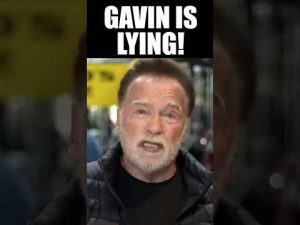**Dick Cheney: A Complicated Legacy of Strength and Caution**
Dick Cheney, the former Vice President of the United States, passed away recently, leaving behind a legacy that is as complex as it is significant. Known for his role in shaping American military and foreign policy, Cheney is viewed through a lens of both admiration and criticism. To understand his legacy, one must dive into the historical context in which he operated and the lessons learned—or perhaps not learned—from his time in power.
The world was quite different when Cheney stepped onto the national stage. The fall of the Berlin Wall marked the end of an era defined by Cold War tensions, leaving Americans grappling with feelings of insecurity stemming from past losses in Vietnam and domestic turmoil of the 1960s and 70s. In this climate, Cheney, who served as Secretary of Defense under George H.W. Bush, played an essential role in restoring faith in the military. His firm belief that a nation unable to defend itself cannot be free helped guide the U.S. through uncertain times.
The Gulf War stands as a testament to this renewed confidence. With a swift and decisive approach, the military campaign liberated Kuwait with minimal American casualties, allowing citizens to embrace a sense of pride in their military without guilt. It was a rarity in the history of American conflicts, bringing forth a clear mission and a solid victory without the long-lasting quagmire Americans feared. Cheney was at the forefront, shaping a military strategy that appeared to embody moral strength—a clear-cut operation with a mission focused on freedom.
However, this confidence faced a severe test on a crisp September morning in 2001. The tragic events of September 11 brought sudden fear and uncertainty, prompting a drastic shift in American military and domestic policies. Cheney quickly became a stabilizing force during a time of chaos, taking on the role of acting president until George W. Bush was safely relocated. His steady demeanor in those initial hours helped provide a sense of order amidst the crisis. Yet, the long-term consequences of that fear were profound; the initial mission of defending freedom began to blur into a broader and oftentimes convoluted definition.
The toolbox created in response to 9/11, including the Patriot Act and the establishment of the Department of Homeland Security, raised questions about the true meaning of liberty. These actions, initially defended as necessary for national security, have been critiqued for infringing upon civil liberties and creating an environment of surveillance. Cheney’s support for such measures, intended to protect, also harbored potential for abuse. This tension reflects the double-edged sword of power: the tools meant to defend can also encroach upon freedom.
Yet, within this complicated narrative, Cheney also demonstrated moments of personal courage. His unwavering support for his daughter Mary’s right to live openly as a gay woman showed a side of him that deviated from the perceived hardline stance typical of a “warhawk.” This personal story contrasted sharply with his public persona, exemplifying the multifaceted nature of his character; a man who was both a fierce advocate for military strength and a father who believed in equality for all.
In his passing, Cheney’s legacy is a reminder that strength is not solely about military might. It serves as a sober reflection on the importance of balance and restraint. A strong nation must also have the wisdom to stop and assess, rather than just respond with force. The lessons learned from Cheney’s era are especially relevant today, as America grapples with modern issues that often echo the past. The need for clear missions in warfare, the protection of civil liberties, and a careful examination of the powers vested in government remain crucial discussions that require the participation of all citizens.
In memorializing Cheney, it is essential not only to honor his service but to acknowledge the myriad lessons his life experience provides. His narrative stands as a cautionary tale about unchecked power, the intertwining of good intentions with potential dangers, and the ongoing quest for a definition of freedom that genuinely reflects the values of a diverse nation.







